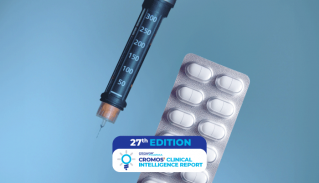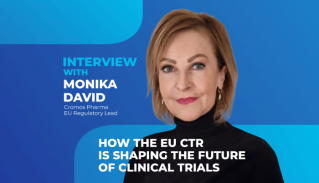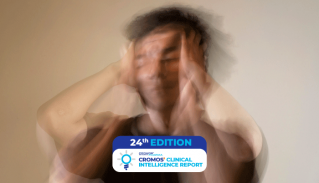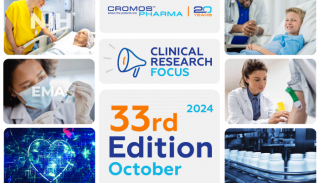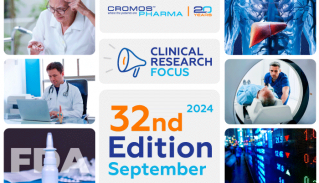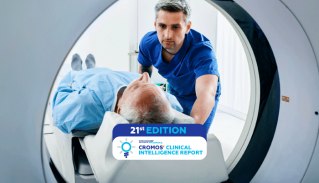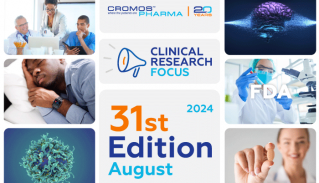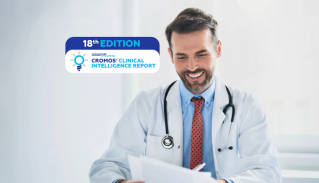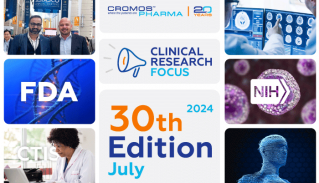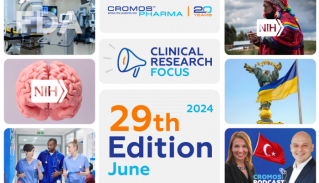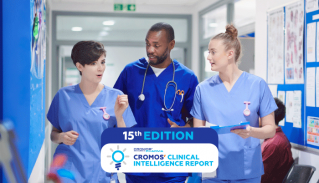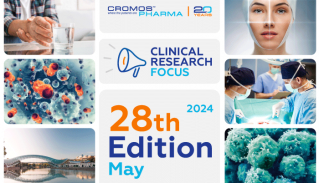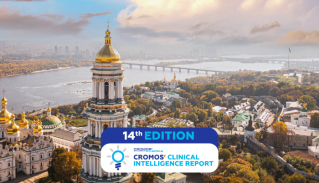
Alzheimer’s Awareness Month: Q&A with Dr Sabina Brennan
September is World Alzheimer’s Month. Alzheimer’s Disease (AD) is the most well-known form of dementia. Dementia is the collective name for progressive brain conditions affecting memory, thinking, behavior and emotions. Dementia affects almost 50 million people worldwide. While aging is a major risk factor for dementia, it also affects people under 65 years.
There are over 100 forms of dementia. AD accounts for 50-60% of all cases. At the present time there is no cure. Current treatments act to temporarily improve symptoms but drug companies and researchers around the world are actively searching for treatments that may slow or stop the progression AD. Cromos Pharma is proud to support clinical research aimed at finding new treatments and maybe one day a cure for this debilitating condition.
To mark Alzheimer’s Awareness Month (Sept 2020) we sat down with leading psychologist, neuroscientist and best-selling author DrSabina Brennan. Dr Brennan is a brain health expert who has advised Irish and UK governments on policies relating to aging and dementia. She is the Irish national representative on the Medical and Scientific Advisory Panel for Alzheimer’s Disease International.
How did you become interested in brain health research?
“In 2007 I got a scholarship to do a PhD in Trinity College Dublin looking at how the brain and cognitive function change as we age. The title of my PhD was quite the mouthful “Neurocognitive and Electrophysiological Indices of Cognitive Performance in Ageing.” I found myself drawn to the literature on cognitive reserve and dementia risk reduction. I found it difficult to understand how this important health information wasn’t in the public domain, wasn’t common knowledge especially as some of the findings were made in the 1980s.
While scientists were doing great work, they spent much of their time talking to other scientists about their research at niche conferences and in academic journals, mostly inaccessible to the general public. Of course, this kind of academic discourse is absolutely essential for scientific progress, but the scientific literature and research on brain health and dementia can be complex and not easy for everyone to follow.
I felt compelled to address this by translating academic and scientific jargon into easy-to-understand, practical information to improve your brain health. As soon as I got my PhD I made a successful application to the European Commission to coordinate a multi-national, multi-lingual project to develop online brain health resources which are available free online and are used in five continents by health providers, governments and NGOS including Ireland’s own dementia awareness campaign Understand Together.”
How would you characterise the current state of clinical research into dementia and in particular AD?
“I believe it remains underfunded. The current pandemic has scuppered a lot of research including my own. Before we went into lock down, I was leading Brain Fit, at Trinity College Dublin. This large-scale study which was co-funded by Genomics Medical Ireland and Science Foundation Ireland aimed to characterise the relationship between brain health, lifestyle, genomics and dementia. Unfortunately, due to social distancing requirements we can no longer collect data from our participants who are aged in their 60s, 70s, 80s and 90s as planned. So, our study like many others is on pause indefinitely.”
What are your hopes for the future of clinical research into AD?
“First of all, that it can resume in a meaningful way. Secondly, that research investment is increased in line with the impact and burden of the disease. That there is a committed focus on and investment in primary and secondary prevention rather than a sole focus on treatment and cure. According to the Lancet Commission’s report published in July 2020 forty percent of all cases of Alzheimer’s disease are attributable to 12 modifiable factors – I would like to see research focused on understanding how best to get individuals to change their behaviour in order to reduce their risk.”
Recruiting participants for clinical research is always challenging but particularly so with AD- what are your thoughts regarding patient and practitioner engagement to encourage participation in CTs.
“COVID-19 has changed the landscape completely on this. But let’s pretend that we are back living in a ‘normal’ world. I think that there needs to be greater patient involvement in all aspects of the research – not just as participants – but as fellow experts who are actively involved throughout the process even before funding is granted (e.g. guiding the research questions to be addressed and research to be prioritised).”
Finally, what are your top tips for brain health?
1. Activity
Get physically active
Physical exercise has a direct benefit on brain structure & function. It stimulates neuroplasticity and creates a nourishing environment for new brain cells. It is associated with better cognitive function and reduced stress, anxiety and depression
Stay socially engaged
Just 10 minutes social interaction can boost brain performance. Social isolation is associated with cognitive impairment and the risk to health is comparable to the risks associated with smoking and obesity.
Go Mental
Challenging your brain, learning new things and seeking out novelty are critical for brain health. These activities promote neuroplasticity, help build brain and cognitive reserves and maintain brain volume.
2. Lifestyle
Love your heart
What’s good for your heart is good for your brain. You brain needs a constant supply of oxygen and nutrients, so a healthy cardiovascular system is critical to brain performance.
Cherish sleep
When you sleep your brain has a job of work to do. New information that you have taken in has to be sorted, discarded or consolidated as memories to free up space to take in new information and learn new things the following day. Your brain also clears metabolic waste and toxins while we sleep.
Choose Balance
Your brain thrives on regularity, so feed it, water it, and rest it at regular intervals. Also fund balance between work and play, technology and nature, being social and being alone, water and alcohol etc.
3. Attitude
Manage Stress
Stress is not bad in and of itself, but poorly managed chronic stress changes the brain structurally and functionally in ways that impair our ability to learn and remember.
Be present
Focusing on what you are doing while you are doing it is a natural antidote to stress. Being in the moment also keeps negative thoughts and memories at bay and reduces anxiety, stress and depression
Smile
Boosts the growth of brain cells, makes your brain more resilient, releases feel good hormones, lowers blood pressure, boosts immune function, protects against stress, anxiety, and depression.
Find out more about brain health at http://superbrain.ie
| About Dr Sabina Brennan: Dr Sabina Brennan is a psychologist, neuroscientist, host of the Super Brain podcast and author of the No 1 best-seller 100 Days to a Younger Brain. Dr Brennan’s leads Brain Fit, a study of brain health, lifestyle, genomics and dementia. Her mission to promote brain health, through quirky animations, talks and online resources, has won her awards for science communication and recognition of the societal impact of her work. Dr Brennan is a passionate advocate and volunteers on multiple committees and panels. She has advised both the Irish and UK governments on matters related to ageing, brain health and dementia and is the Irish national representative on the Medical and Scientific Advisory Panel for Alzheimer’s Disease International. Her next book Beating Brain Fog (Orion Spring) will be published 4th March 2021. |


